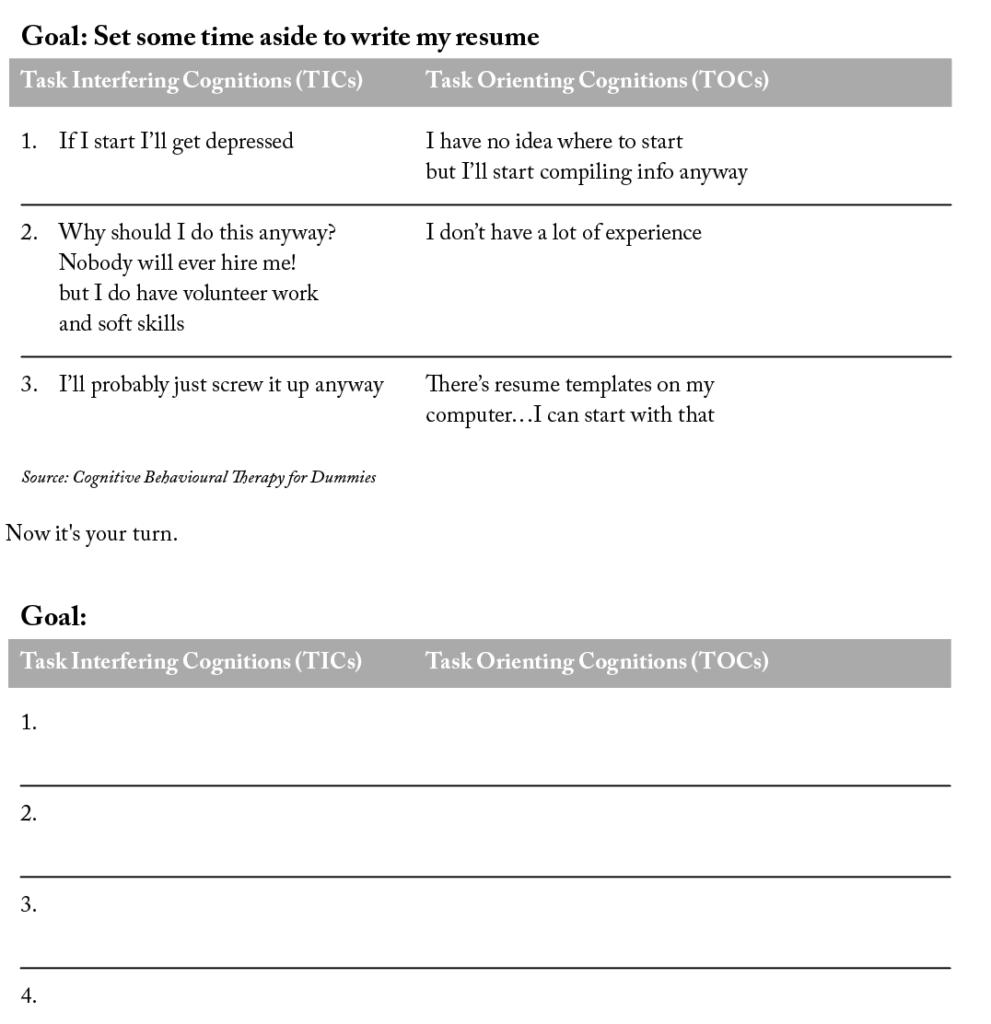Resources
Setting goals the
“sporty” way

Congratulations!
You’ve now reached a stage where you have completed your self- assessments, researched some work options and arrived at some conclusions. It’s time to set some goals.
We often hear about setting SMART goals (Specific, Measurable, Achieveable Relevant and Timely) to help you make your plans more concrete and in the process, eliminate vagueness. And while this is a good model, Branch and Wilson (2010) have created another model that works just as well and might be more relevant to your job search goals. They have dubbed their model: SPORT, which stands for:
Specific – Being precise about what you want, how you want to feel and when you want to achieve the goal.
Positive – Framing your goals in positive terms and using positive self -talk to keep developing and enhancing your objectives. Perhaps you want to learn a skill or perform better during job interviews. This would be the place to state these goals.
Observable – This could be framed as an outcome or an achievement in the ongoing development of your goals. For example, rating your confidence levels during interview skills prior to job search (4) and then rating your them again after meeting with a job coach and practicing mock interviews (7).
Realistic – I once asked a client what his goals were for a career. “Well, since world domination didn’t work out, I think I’ll try janitorial,” he said. With absolutely no work experience and a strong presence of dyslexia that had never been successfully addressed in a job context, he had adjusted his goals accordingly while acknowledging that janitor, while a respectable goal, wasn’t where he wanted his life to stop. He was aware that he had strong verbal and visual skills but wasn’t quite sure how to harness these, these became part of his goal.
Timely – Try to establish a realistic time frame to help keep you as focused as possible. These should be firm but flexible to allow yourself some breathing space. Also, are there behaviours you would like to change? Things you are now prepared to face but couldn’t before? Maybe going out and networking or attending a Toastmasters meeting was terrifying for you. Establish some sub-goals to help you reach this one item you want to reach while “scaling Everest.”
TIP: When tasks seem overwhelming, consider breaking them down into bite-size pieces that are
Manageable and trackable. One method for managing this is writing a specific task on a post it note and then write down every single step involved in achieving that particular goal. When finished, post it on the wall. As each task is completed, congratulate yourself by removing the corresponding post it note from the wall. You are literally watching your task shrink before your eyes as you see yourself getting closer to the outcome you want.
It should be taken as a given that some goals such as say, finding a medication to manage your epilepsy might take longer than expected to achieve. Don’t stress yourself out by being too rigid or inflexible with your plans. Make sure you leave some wiggle room to adjust as you go…you’ll spare yourself lots of stress!
It’s not enough just to set goals, you need to also track your progress. This helps keep you motivated. Tracking also allows you to see how far you’ve come and reward yourself.
There may also be times where you feel like you’re stagnating. When this happens you might need to either revise some of your goals, or at least renew your commitment to them. Could it be that maybe your feeling ambivalent about managing your concerns? Sometimes staying the same appears easier than changing, even if it’s for the better.
TIC TOC Technique
Perhaps you’ve run into a brick wall. This is perfectly natural. Sometimes we try to take on too much. Sometimes we fail to realize that other steps must be sorted out first before our longer-term goals seem attainable.
The Tic Toc technique is “a simple yet effective way of unblocking obstacles to change. The technique is useful in helping you take a closer step to your goals.
“TICS” are “task interfering cognitions.” These are the thoughts, attitudes and beliefs that get in the way of your progress. You need to respond with TOCS—“task orienting cognitions” which are positive and constructive responses to TICs.
Complete the Tic Toc sheet by following these steps:
1- Identify the goal you want to focus on in the left column (TICS), list thoughts, attitudes and beliefs that get in the way of you achieving these goals.
2- In the right column, (TOCs) put responses to each of your TICs that will help you achieve your goal or task:
See sample TIC TOC sheet below.
Once you’ve decided on your goals it’s important to create action steps that help you reach these goals. As with chunking, part of this process is about breaking tasks down into step by step into clear achievable tasks and identifying resources needed to accomplish these. Supplementing this is evidence of completion.






